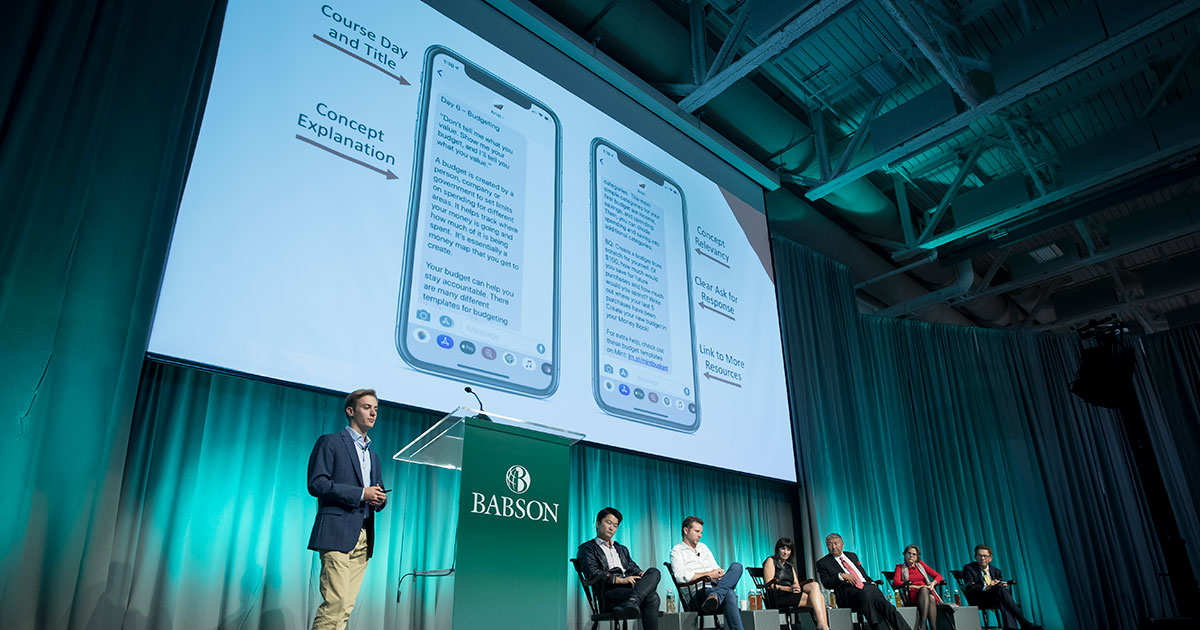Paying It Forward

Have you heard this narrative before? Entrepreneurs, faced with an obstacle, find a solution, offering greater opportunities for those in need than what was previously available.
Michael Ioffe ’21 and Ryan Laverty ’20 tackled this challenge for the first time when they founded text-messaging learning platform Arist last year. This week, they did so again when they announced free access to Arist for all schools affected by the 2019 Novel Coronavirus (COVID-19), allowing students who may not have access to online course offerings the chance to continue their studies.
“With the realization that many of our peers may not have access to the internet, our team came together and realized this could be a way to help,” Ioffe said. “We see it as the ability to fix a pressing problem in a time of need.”
Students Helping Students
COVID-19 has forced a number of colleges and universities to indefinitely shift to online courses, something not all students have access to.
That’s where text-message learning comes in.
Professors can request free access to Arist on the company’s website, and rapidly create and launch a course, tailored to their own specifications. The company also will offer accelerated training for educators.
Students learn via Arist in as few as five or as many as 60 days. A daily text is sent with a concept, case study, quiz, or prompt for reflection. Students respond to the text message with their answer.
Ioffe attributed the company’s success back to Babson.
“I’m grateful for all of my Babson professors who helped make Arist what it is,” Ioffe said. “It was an opportunity to give back.”
The company was established following Ioffe’s experience working with Yemen students who lacked the high-speed internet connections necessary to participate in online learning. Most recently, a COVID-19 course has provided knowledge about the virus to 90,000 Nakivale Refugees in Southwest Uganda following the area’s first reported cases.
“Arist is already being used to reinforce, supplement, and even replace learning experiences of all kinds, and we want to help professors maximize the remote learning experience they can deliver to students,” said Arist chief impact officer Maxine Anderson ’22.
Posted in Community







